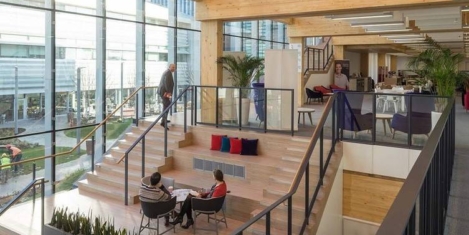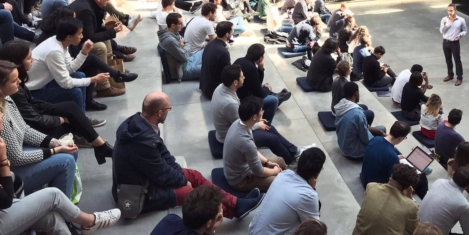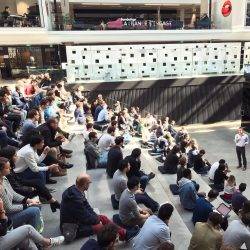To provide the best experiences, we use technologies like cookies to store and/or access device information. Consenting to these technologies will allow us to process data such as browsing behaviour or unique IDs on this site. Not consenting or withdrawing consent, may adversely affect certain features and functions.
The technical storage or access is strictly necessary for the legitimate purpose of enabling the use of a specific service explicitly requested by the subscriber or user, or for the sole purpose of carrying out the transmission of a communication over an electronic communications network.
The technical storage or access is necessary for the legitimate purpose of storing preferences that are not requested by the subscriber or user.
The technical storage or access that is used exclusively for statistical purposes.
The technical storage or access that is used exclusively for anonymous statistical purposes. Without a subpoena, voluntary compliance on the part of your Internet Service Provider, or additional records from a third party, information stored or retrieved for this purpose alone cannot usually be used to identify you.
The technical storage or access is required to create user profiles to send advertising, or to track the user on a website or across several websites for similar marketing purposes.
 While the debate rages on about the exact consequences of the use of automation in the workplace, IT firm Cognizant has identified what it claims are the jobs of the future. Of the jobs Cognizant tracks, 45 actually exist today, such as data scientist and aerospace engineer. The other five are “proxy” jobs, the key characteristics of which the report sets out to define.
While the debate rages on about the exact consequences of the use of automation in the workplace, IT firm Cognizant has identified what it claims are the jobs of the future. Of the jobs Cognizant tracks, 45 actually exist today, such as data scientist and aerospace engineer. The other five are “proxy” jobs, the key characteristics of which the report sets out to define.




































October 15, 2018
Some thoughts on the addictive power of workplace design
by Agustin Chevez • Comment, Workplace design
(more…)